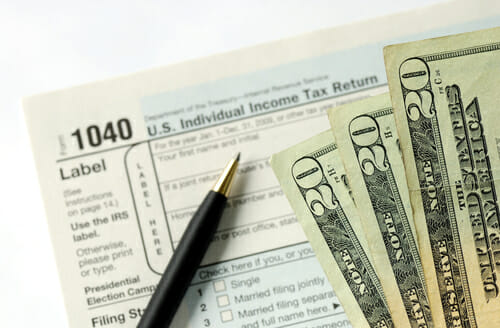 {Read in 6 minutes} One of the most common questions that I get from Executors and beneficiaries alike is whether or not a beneficiary must pay income taxes on their inheritance. This is an important question, so I thought I would address it here in this blog.
{Read in 6 minutes} One of the most common questions that I get from Executors and beneficiaries alike is whether or not a beneficiary must pay income taxes on their inheritance. This is an important question, so I thought I would address it here in this blog.
Generally, the answer is no! … with some notable exceptions.
Why? Because the Internal Revenue Code generally excludes that any assets one receives by way of a gift or an inheritance in the beneficiary’s gross taxable income. This means that if I were to die and leave you $20,000 (sucks for me, but awesome for you), you would not need to list this inheritance as income on your income tax return next April. Beneficiaries should look at gifts and inheritances as mostly income tax-free money; however, I know everyone is really interested in the exceptions to the rule, because frankly no one wants to assume that the rule doesn’t apply to them — only to find out they owe income taxes (and perhaps interest and penalties) later.
Basically, the only time that a beneficiary inherits a tax burden along with an inheritance is when the item would have been otherwise taxable to the deceased. Here are three scenarios in which that might occur:
– Retirement accounts: With some notable exceptions (such as a Roth IRA) most people make pre-tax contributions to their retirement accounts. Employees typically have their employer withhold a portion of their paychecks to contribute it to an IRA, and the employees make this contribution without paying any income tax on the contributed amount. In the normal course of events, the employee would continue making contributions to the retirement account until they retire, at which point they would then begin withdrawing the sum to help fund their retirement. At this point, the employee would pay income taxes on the funds as he or she withdraws them.
Note here, the employee never paid income taxes. If the employee were to die before retirement (or before he or she fully withdrew all the funds from the retirement account) then the beneficiary would inherit those dollars, along with the income tax consequences. This means that when the beneficiary withdraws those monies from the accounts, the beneficiary will receive a 1099 from the company administering the plan and must report that income on their income tax return (and must pay income taxes on the sum). By the way, it’s important to know who the beneficiary is on the accounts, because they pass outside the probate process.
– Savings bonds: Many people purchased paper savings bonds at a fraction of their face value. Many US savings bonds earn interest for up to 30 years and can have a surrender value that greatly exceeds their face value. Because all of this is income on an investment, when the investor liquidates the bond, the investor would be subject to income tax on the gain (actually, the realization of accumulated income). Similarly, if the investor dies and the investor’s beneficiary inherits the bond — either as a payable-upon-death beneficiary or through the Will — the beneficiary would create a taxable event upon cashing the bond, requiring reporting to the IRS and payment of income taxes.
– Taxable Income Generated by the Estate: Sometimes, the Estate itself will generate taxable income. For example, let’s say a deceased dies owning an investment account and a building containing two rental apartments and a commercial storefront. The Executor collects the assets, including the rent and the dividends from the two major assets, and eventually liquidates a) the investment account by reducing it to cash, and b) the building by selling it to a third-party purchaser and receiving cash. Both of these transactions may produce tax consequences. The income that the Executor received into the Estate from the dividend, interest, and rental payments would be subject to income tax. Similarly, any gain that the Executor realized when liquidating the investments or the property would also be subject to income tax.
How does this affect the beneficiary? When the Executor distributes out funds to the beneficiaries, a certain portion of it may contain taxable income. In my example, let’s say that you and your spouse were the sole beneficiaries of this Estate. You would receive the principal value of all of the assets as liquidated, and that would be free of income tax; however, the Executor would also be distributing out to each of you:
– half of the rents collected;
– half of the income;
– half of the dividends; and
– half of the gains.
The above portion would be taxable income to each you, unless the Executor had other deductions available to offset this income, such as legal costs, Estate administration expenses, or debts the deceased left behind.
In summary, beneficiaries can generally rest assured that the funds they receive are not subject to income taxes. However, it’s important that they meet with a Trust and Estates lawyer and/or a tax professional to discuss this. It’s important that beneficiaries are in communication with the Executor so they can plan for any sudden realizations of income well in advance. Finally, it’s important to remember that this article is just limited to income tax consequences of an inheritance. For the Estates of very wealthy people, it is possible that their Estate may also be subject to an estate tax.
To learn more, contact me.

